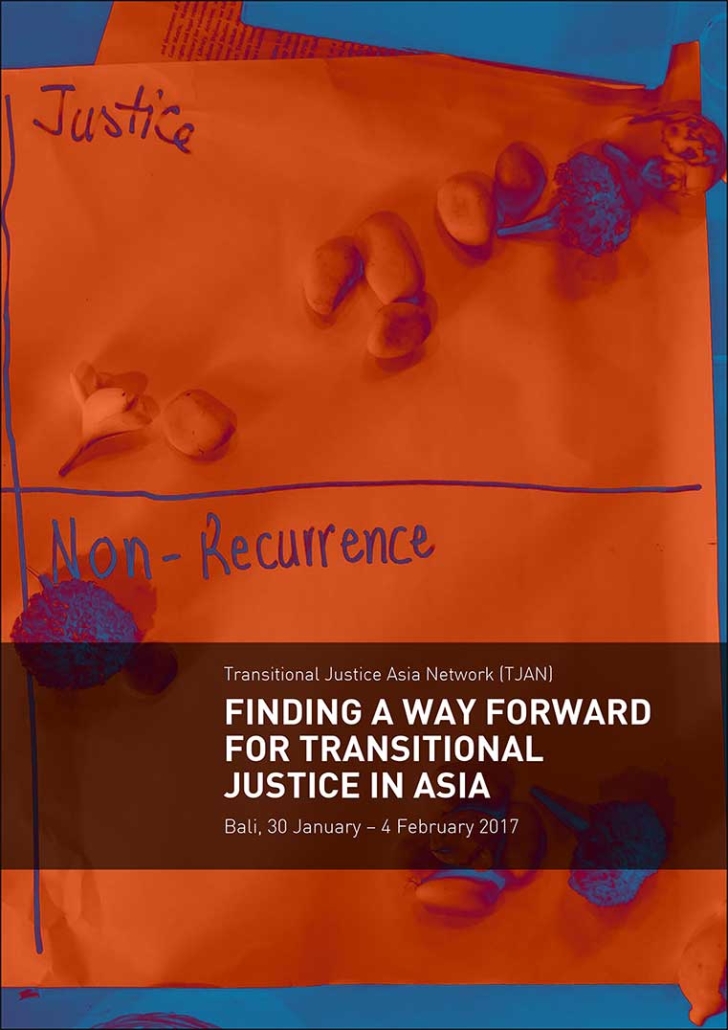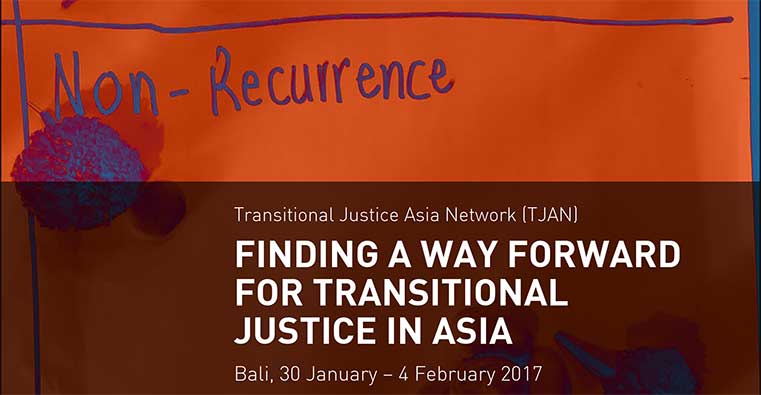Finding a Way Forward for Transitional Justice in Asia
A history of mass crimes accompanied by impunity are features of many Asian states, providing a base for ongoing instability, failure of the rule of law and continuing cycles of violence. Transitional justice (TJ) mechanisms are widely misunderstood and resisted in the region, where perpetrators often remain in powerful positions in post-transition landscapes. In these settings, those that are implicated in mass human rights violations often actively promote the lack of accountability, cloaking self-serving protective strategies under the umbrella of ‘Asian values’. Regional human rights mechanisms remain weak, particularly around accountability for mass crimes.
Concerned about this history of mass violations and impunity, AJAR, together with KontraS Aceh (Commission for the Disappeared and Victims of Violence, Aceh, Indonesia), ND-Burma (Network for Human Rights Documentation, Myanmar), Suriya Women’s Development Centre (Sri Lanka), Alternative Law Groups (Philippines) and Cross Cultural Foundation (Thailand) convened a five-day workshop on transitional justice early in 2017. At the end of the workshop, participants agreed to establish the “Transitional Justice Asia Network (TJAN)” to facilitate learning across Asia and strengthen Asian voices in the field of transitional justice.

Owner/Developer : TJAN, AJAR, etc
Language : English

